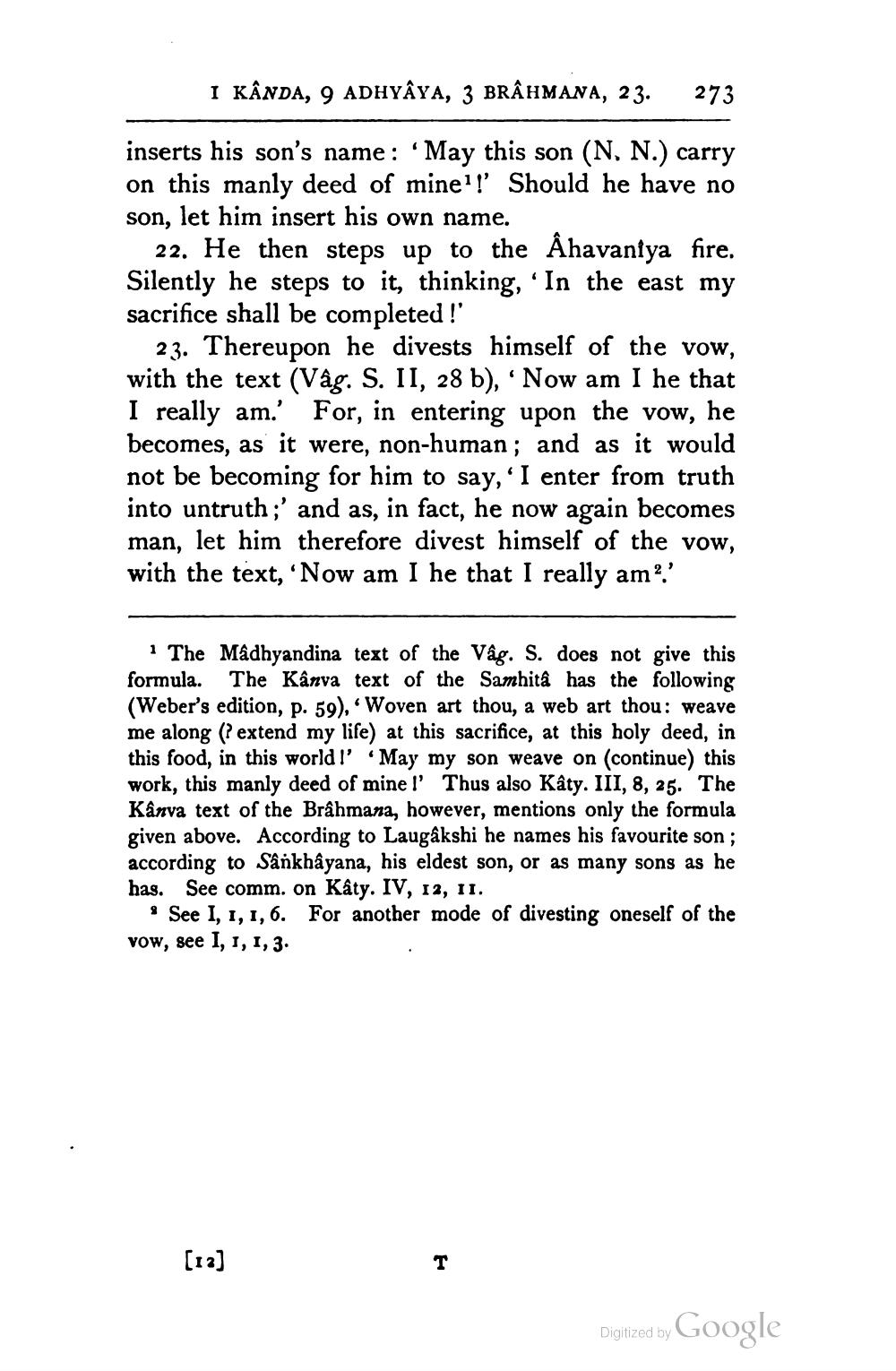________________
I KÂNDA, 9 ADHYÂYA, 3 BRÂHMANA, 23.
273
inserts his son's name: 'May this son (N, N.) carry on this manly deed of mine?!' Should he have no son, let him insert his own name.
22. He then steps up to the Åhavaniya fire. Silently he steps to it, thinking, 'In the east my sacrifice shall be completed !'
23. Thereupon he divests himself of the vow, with the text (Vág. S. II, 28 b), Now am I he that I really am. For, in entering upon the vow, he becomes, as it were, non-human; and as it would not be becoming for him to say, 'I enter from truth into untruth;' and as, in fact, he now again becomes man, let him therefore divest himself of the vow, with the text, 'Now am I he that I really am?'
1 The Madhyandina text of the Vâg. S. does not give this formula. The Kanva text of the Samhita has the following (Weber's edition, p. 59), Woven art thou, a web art thou: weave me along (extend my life) at this sacrifice, at this holy deed, in this food, in this world !' 'May my son weave on (continue) this work, this manly deed of mine l' Thus also Kâty. III, 8, 25. The Kanva text of the Brâhmana, however, mentions only the formula given above. According to Laugâkshi he names his favourite son; according to Sânkhayana, his eldest son, or as many sons as he has. See comm. on Käty. IV, 12, 11.
. See I, 1, 1,6. For another mode of divesting oneself of the vow, see I, 1, 1, 3.
[12]
Digitized by Google




